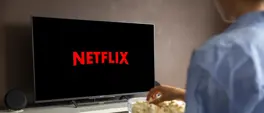Hight Court ruling paves the way for legal rhino horn exports in South Africa
Rafiq Wagiet
3 November 2025 | 18:01The court ruled that the government's refusal to grant permits for the export of rhino horns was unlawful and unconstitutional.

Picture: Pixabay.com
A recent ruling by the Northern Cape High Court has opened the door for the legal export and sale of rhino horn harvested as part of registered conservation programmes, marking a significant shift in South Africa’s approach to wildlife trade and conservation funding.
The court’s decision effectively allows individuals and organisations that have lawfully harvested rhino horn, including those involved in conservation breeding operations, to export and sell it, provided the process complies with existing regulations.
The judgment touches on one of the most hotly debated conservation issues of the past two decades, amid soaring rhino poaching rates and the illicit global trade in rhino horn.
While the Convention on International Trade in Endangered Species of Wild Fauna and Flora (CITES) has banned the commercial international trade of rhino horn since 1977, limited exemptions exist under strict conditions. These include certain domestic and export transactions involving captive-bred rhinos.
Although the government will still be required to authorise export permits, the ruling could unlock significant financial resources for conservation initiatives, particularly those focused on protecting and rebuilding populations of the critically endangered white rhino.
Dr. Derek Lewitton, a leading rhino conservationist who previously faced, and was later cleared of charges of unlawful rhino horn possession, hailed the court’s decision as a breakthrough for sustainable conservation.
“This case is critical because it allows those of us who have invested our lives and livelihoods in saving rhinos to finally fund that work,” Lewitton told Stephen Grootes on The Money Show. “It ushers in a sustainable model where conservation can pay for itself.”
Lewitton added that CITES contains specific provisions for Conservation Breeding Operations, a framework that supports breeding programmes and includes exemptions designed to facilitate trade for conservation purposes.
“This ruling reaffirms those exemptions,” he said. “It’s a step toward ensuring that responsible conservation efforts are not only viable but self-sustaining.”
To hear more from Dr. Derek Lewitton about the landmark court ruling regarding rhino horn export in South Africa, listen to the interview audio at the top of the article.
Get the whole picture 💡
Take a look at the topic timeline for all related articles.
Trending News
More in The Money Show

18 December 2025 19:31
Warner Bros. picks Netflix offer over Paramount buyout, but not a done deal yet

18 December 2025 18:47
Reshaping KZN's North Coast: Dubai-based developer plans R20bn additional investment in Zimbali

18 December 2025 17:41
World's first 'Enhanced Games' will see athletes using approved performance-enhancing substances











